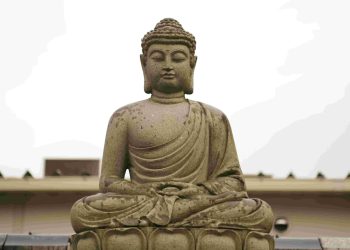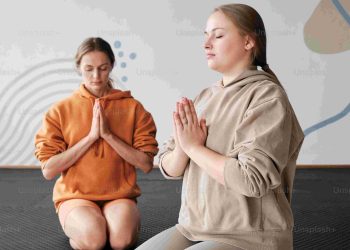Unlocking the Mind: The Transformative Benefits of Daily Meditation Practice
In a world that is constantly in motion, where distractions seem to be an integral part of life, the art of meditation emerges not merely as a practice but as a profound necessity for mental well-being and personal growth. Why should we meditate daily? The answer is multifaceted, but at its core lies the promise of a clearer mind, heightened emotional resilience, and a deeper connection with oneself.
Reflecting on my own journey, I vividly recall the chaos that once dominated my life. My days were a whirlwind of deadlines, responsibilities, and digital distractions that left me feeling drained. It wasn’t until I committed to a daily meditation practice that I experienced a profound shift; my racing thoughts began to settle, my focus sharpened, and my emotional reactions softened. This personal revelation transcends individual experience and unveils a broader societal discontinuity—the need for mental clarity in an age laden with ‘noise’.
Challenging Conventional Wisdom
Traditionally, society has prioritized productivity and busyness as the hallmarks of success. Many regard stillness as a sign of weakness or lack of ambition. However, this perspective warrants scrutiny. Studies show that the most successful individuals often embrace moments of quiet reflection, allowing their minds to synthesize information and foster creativity. What if we could flip the script? What if we approach personal and professional growth not by cramming more into our schedules, but by creating intentional spaces of stillness?
A Cross-Disciplinary Lens
To fully appreciate the multifaceted benefits of meditation, we must utilize principles from psychology, philosophy, and even technology. From a psychological standpoint, regular meditation has been linked to reduced anxiety and depression. Experts like Dr. Jon Kabat-Zinn advocate for mindfulness practices which have shown remarkable effectiveness in clinical settings. Philosophically, thinkers like Marcus Aurelius have long championed the importance of introspection and self-awareness. When technology is factored into this conversation, innovations like meditation apps empower individuals to cultivate their practice, making it accessible anytime, anywhere.
Projecting Future Trends
As we look towards the future, the intersection of mental health and technology will significantly shape our societal landscape. With the rise of the digital nomad and remote work culture, people will increasingly seek tools to enhance productivity without succumbing to burnout. Meditation, once seen as a niche, will gain momentum as a foundational component of professional training programs. Industries recognizing the value of employee well-being will integrate mindfulness into their corporate culture, ultimately leading to healthier, more engaged workplaces.
Practical Steps to Incorporate Meditation
So, how can you harness the transformative power of meditation? Here are actionable steps to integrate this practice into your daily routine:
-
Start Small:
Dedicate just five minutes a day to mindfulness. Allow yourself to gradually increase this duration as you feel more comfortable. -
Create a Sacred Space:
Designate a quiet area free from distractions where you can perform your meditation rituals. -
Utilize Guided Meditations:
Leverage apps or online resources that offer guided sessions tailored to your level of experience. -
Pair with Breathing Exercises:
Combine meditation with deep breathing techniques to enhance relaxation and focus. -
Reflect on Your Experiences:
Keep a journal to record your feelings post-meditation; observe how your thoughts evolve over time.
Using Metaphors to Simplify Complexity
Imagine your mind as a flowing river; daily meditation acts as a natural dam that helps regulate the water’s flow. Without it, the river swells uncontrollably—an overflow of thoughts leading to turbulence and confusion. With regular meditation, you create a reservoir of calm, allowing tranquil waters to prevail. This metaphor illustrates how meditation not only mitigates chaos in our minds but also fosters serenity.
Continuous Learning and Self-Education
A commitment to personal development cannot be overstated. Embracing meditation fosters a culture of continuous learning, where one becomes aware of their thoughts, emotions, and behavioral patterns. This self-awareness paves the way for informed decision-making and the pursuit of knowledge—whether through reading, attending workshops, or engaging in discussions. By nurturing an inquisitive mindset, you cultivate a life rich in insights and wisdom.
Encouraging Action and Participation
As you inch closer to incorporating meditation into your daily life, consider this a compelling invitation to take that first step. Whether it means waking up just a tad earlier or setting a reminder at lunchtime to pause and breathe, the opportunity for transformation lies within your grasp. Remember, every great journey begins with a single step—dare to take yours.
Critical Thinking: Questioning the Mainstream
It’s crucial to challenge prevalent beliefs surrounding productivity and self-care. The mainstream narrative often discredits practices that focus on self-healing in favor of aggressive competition. But what if the pursuit of excellence doesn’t lie in relentless hustle but rather in nurturing one’s inner landscape? Embrace questioning as a tool and remain vigilant against prescribed norms that might stifle your growth.
Completing the Cycle
Initiating a daily meditation practice fosters not just mental clarity; it creates an ecosystem where personal and professional lives can thrive in harmony. The transformation witnessed through practice stems from a blend of self-awareness, psychological insight, and the disruption of traditional paradigms around self-worth and productivity. As we strive for enhanced mental clarity in this digital era, we return to the essence of stillness, unlocking the mind to a future replete with possibilities.










